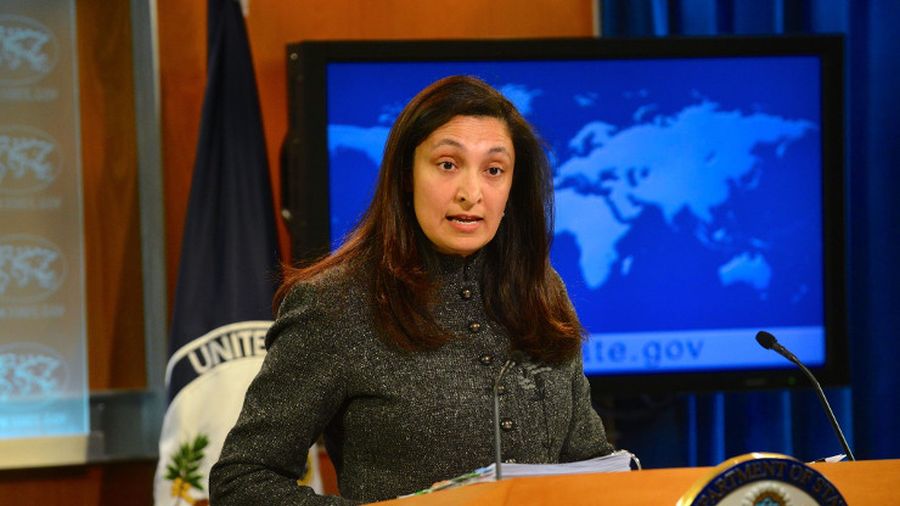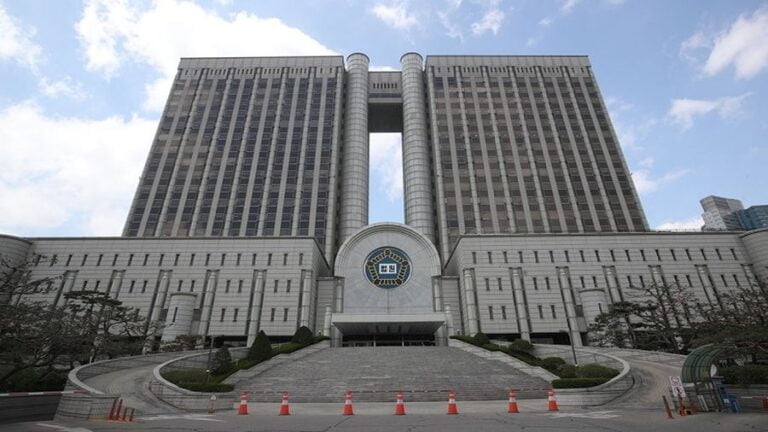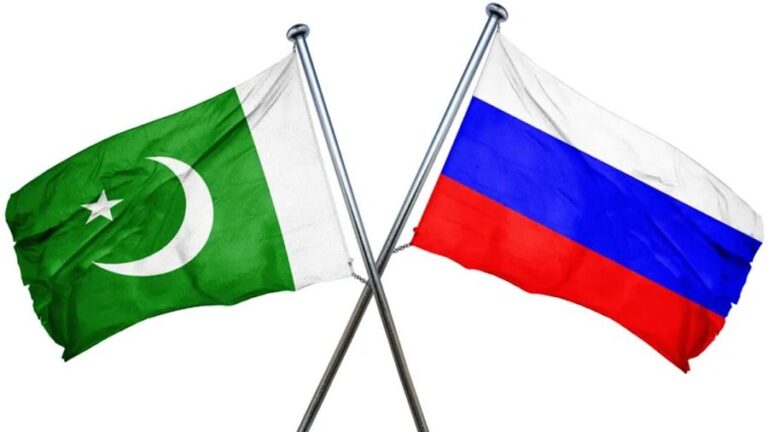US is Actively Trying to Transform Kyrgyzstan into Anti-Russia
The geopolitical confrontation between the collective West, led by the United States, and Russia has noticeably intensified and in recent months, after Moscow launched a special operation to denazify Ukraine, has perhaps reached its peak. This confrontation is especially clearly manifested in the political and trade and economic spheres.
The United States, having recently made Russophobia the main focus of its policy, is strenuously trying to aggravate relations with Russia in various regions of the world, especially in the territory of the former USSR – Ukraine, the Baltic States, and Central Asia. These “showdowns” are inspired by the United States on the territory of peoples that were formerly fraternal to Russia, with the main goal – to tear these states away from the Russian Federation and radically change their political orientation towards full subordination to the interests of the United States. By its actions, the West seeks to turn the post-Soviet space into a zone of active confrontation with the inspiration of social unrest and even terrorist actions.
The special interest of the collective West in provoking an aggravation of the situation in Central Asia is due to the fact that the interests of many major geopolitical players intersect in this region: Russia from the north, China from the east, the collective West from the west, and the Islamic world from the south. After Moscow launched the special operation in Ukraine, the United States increased its pressure on the states of the region, demanding that they dissociate themselves from Russia to the fullest. This has put the Central Asian states, which are members of the CSTO and the Eurasian Economic Union, in a rather difficult and delicate situation. And if earlier the position of neutrality suited the countries of the region in many respects, today this is not enough, since it is impossible for the Central Asian countries to avoid the need to respond to the openly hostile actions of the United States and its allies by stating excuses about the commitment to multi-vector policy.
In an attempt to exploit some confusion among the authorities of individual Central Asian states, the United States and its Western allies have intensified the interaction with the political elite of the countries of this region. So, in recent months, they have placed a serious emphasis in this regard on Kyrgyzstan, which the collective West is intensively trying to make an anti-Russian country.
For this purpose, for example, in mid-April, the US Under Secretary of State for Civil Security, Democracy and Human Rights, Uzra Zeya, paid a visit to Bishkek. She held a series of meetings with representatives of the leadership of this country: with the Minister of Foreign Affairs, the Prosecutor General, the Deputy Head of the Cabinet, as well as with representatives of civil society and heads of many NGOs. In an interview with journalists, Uzra Zeya admitted that in the over thirty years of Kyrgyzstan’s independence, the US authorities have poured about two billion non-refundable dollars into the country.
Speaking of which, it is particularly noteworthy that, thanks to the active efforts of American diplomacy, an extensive network of more than 18 thousand NGOs and NPOs has been created in Kyrgyzstan – a huge number for a country with 6 million people, in connection with which Kyrgyzstan is even called “a country of NGOs.” There are many openly anti-Russian and banned-in-Russia organizations among these NGOs that have created their own pro-Western network throughout Kyrgyzstan and are trying to establish control over the public minds. According to some reports, the amount of annual funds allocated by donors to local NGOs exceeds the budget of state institutions and some regions of Kyrgyzstan. The actions of pro-Western NGOs also explain the political rapid change in the republic, expressed in the financing of protests and color revolutions caused by them. Acting in tandem with the local US embassy, these NGOs are trying to systematically infiltrate the political life of the republic, engaging, among other things, in direct buying up of the media and prominent representatives of the elite, unceremoniously interfering in the internal affairs of Kyrgyzstan.
Following Uzra Zeya, another emissary of the US State Department, Assistant Secretary of State for South and Central Asian Affairs Donald Lu, visited Kyrgyzstan in May with the main goal of preventing the republic from participating in circumventing US sanctions against Russia and trying to persuade local authorities to turn against Russia. Therefore, it is not surprising that Lu included representatives of the Pentagon, the National Security Council, the International Development Finance Corporation and the Agency for International Development (USAID) in his delegation. At the initiative of the American party, the issues of minimizing the negative impact of international anti-Russian sanctions on the economy of Kyrgyzstan, as well as the importance of cooperation between countries within the C5+1 platform were considered. In this connection, it is appropriate to recall that the last meeting of participants in this format was held at the end of February at the initiative of the United States and was led by the head of the State Department Antony Blinken, who tried to find out the positions of the countries of the region on the Ukraine. However, at that time, Kyrgyzstan, like other Central Asian republics, had not yet decided on this issue, and therefore the United States began to push the country and its neighbors in the region towards a position advantageous to the US, through its emissaries – Uzra Zeya and Donald Lu.
Continuing this pressure on the countries of the region and, in particular, on Tajikistan, in mid-June Kyrgyzstan and neighboring states were visited by another important emissary of the United States – the head of the Central Command of the US Army, General Michael Kurilla, who was appointed to this post on April 1, 2022. Official American statements indicated that the Pentagon general’s trip to Central Asia allegedly “took place within the framework of strengthening cooperation between the United States and the countries of the region in the field of security and stopping threats emanating from the territory of Afghanistan.” However, it is an open secret that in fact the Pentagon tried to signal that it keeps the situation in the region under control and is not going to leave. And this means that the US military command continues to consider Central Asia as a potential springboard against Russia and China. It’s no secret that the Central Command of the US Army is a staff structure within the armed forces of the United States responsible for planning operations and managing American troops in the event of military operations in the regions of the Middle East, East Africa and Central Asia. And recently, it has been responsible for all US military operations in Iraq and Syria.
Under these conditions and in order to give additional impetus to work in Kyrgyzstan in areas of interest to the United States, the US Senate Foreign Affairs Committee on July 29 approved the candidacy of Lesslie Viguerie as the new ambassador of the United States to Kyrgyzstan. Viguerie was selected due to his good knowledge of the specifics of the region: he currently works at the State Department as Deputy Assistant Secretary for Central Asian and Pakistan Affairs in the Bureau of South and Central Asian Affairs. Previously, he was the Deputy US Ambassador to Uzbekistan, and worked in the American diplomatic missions in Delhi and Moscow. He speaks Hindi, Russian and Portuguese.
As follows from Lesslie Viguerie’s presentation speech at a meeting of the relevant committee of the US Senate, he intends to place a special emphasis in his work on supporting a wide network of NGOs already established by the United States in that country in recent years to implement the tasks of interest to the US. That is, to continue the separation of Kyrgyzstan from Russia by using NGOs and in pushing “American-style democracy” in this country.







